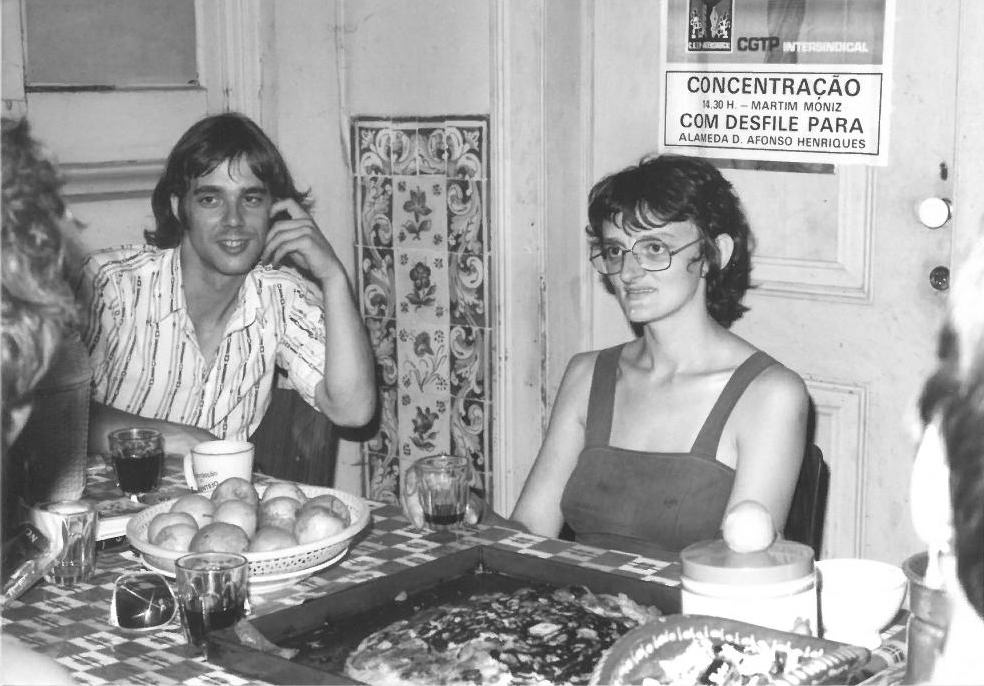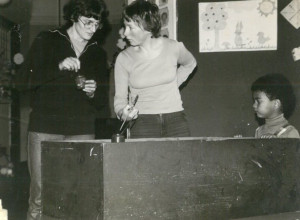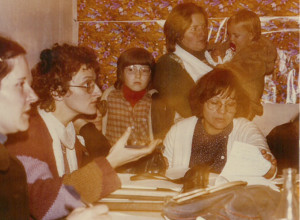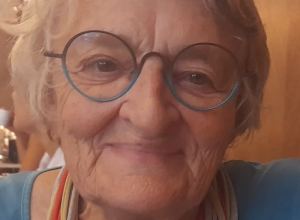
On 21 November, CD25A had the privilege of welcoming Godlieve Meersschaert, who donated an important section of his personal archive to us. This archive is the result of his work between the late 1970s and early 1980s at the Domestic Workers' Cooperative - Cooperserdo and the Domestic Service Union.
The archive, whose donation was brokered by sociologist Mafalda Araújo - to whom we are very grateful for the initiative - presents Lieve's personal and distinctive element and complements the Domestic Service Union Archive Fund already existing at the Centre.
Lieve Meersschaert, born in Belgium in 1945, studied psychology at the University of Louvain. In 1971, she attended a course in Paris with philosopher and educator Paulo Freire. In the context of her work with the Catholic Workers' Youth Association of Turnhout (Belgium) - KAJ-Turnhout, in 1976, in collaboration with KAK (Netherlands) and JOC Portuguesa, she organised solidarity actions that forced the payment of three months' back wages to 300 workers at the Maconde clothing company. It was through this initiative that, in contact with Base-Fut, the opportunity arose to work at Cooperserdo, moving to Portugal in 1978, where she continued to work at Cooperserdo until 1985, during which time he also collaborated with the Domestic Service Union, namely in the preparation of the Domestic Workers' Congress, which took place on 28 October 1979.
In this context, he also developed a training course consisting of eight sessions. Between October 1981 and February 1982, she wrote several chapters in Dutch on the SSD and Cooperserdo, which she did not publish at the time, but only in 2025 in her book entitled ‘Domestic Workers and Day Workers in Portugal: notes by Lieve Meersschaert’. In 1983, she interviewed 23 Portuguese domestic workers and in 1985 she was invited to present her work at the Colloquium ‘Women in Portugal’ on the role of domestic workers, which was eventually turned into an article and published in the magazine ‘Análise Social’.
Between July and January 1981, she worked full-time as a volunteer at Cooperseerdo - Cooperativa Operária de Serviço Doméstico (Domestic Service Workers' Cooperative). In 1982, she decided to settle in Cova da Moura (Amadora), a neighbourhood where she founded the Moinho da Juventude Cultural Association in 1987, together with her husband, Eduardo Pontes.




